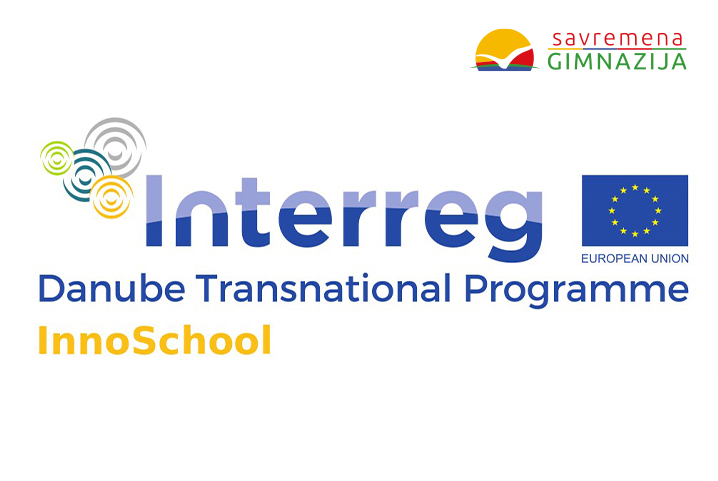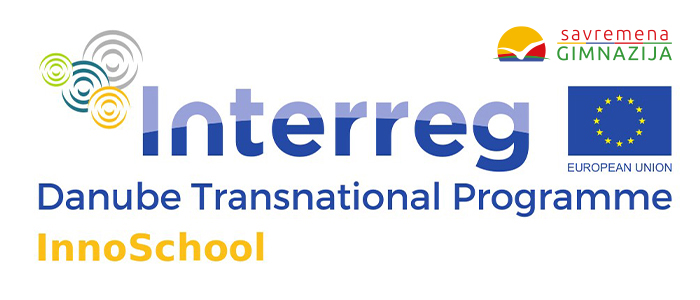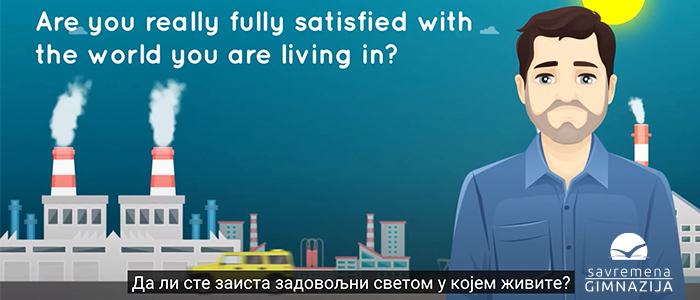
Savremena Gimnazija proudly announces that this school year, we have become part of the InnoSchool Learning system – ILS. The ILS international program is a modern tool for learning about social entrepreneurship which, upon the completion of the project will become eligible for the integration into the curriculum of secondary schools in Serbia.

Important regional project
The InnoSchool project is being implemented in nine countries of the Danube Region: The Czech Republic, Slovakia, Austria, Hungary, Romania, Bulgaria, Bosnia & Herzegovina, Moldova, and Serbia.
Research has shown that the entrepreneurial culture of this region is at a relatively low level compared to the European Union average, and some of the most important reasons for such state of things include underdeveloped entrepreneurial spirit and culture, as well as distrust in entrepreneurship. At the same time, rapid technological changes are generating new needs and challenges for the state and society. It is believed that social innovations and entrepreneurship can provide an adequate response to them, but systemic reforms are needed to further encourage them.
In Serbia, this project is carried out by the Regional Agency for Development and European Integration (RAREI Belgrade) in partnership with the Ministry of Education, Science and Technological Development, and with the support of a number of governmental and non-governmental institutions and organisations. Only 11 schools are currently part of the project in Serbia, and Savremena Gimnazija is proud to be among them.
The scope of the InnoSchool project, financed from EU funds, is best illustrated by the fact that it will be tested in 90 schools in nine different countries.
Social entrepreneurship as an engine of social change
Social entrepreneurship is recognised all around the world for its ability to make a positive social impact by combating burning social problems. Education is a link between these challenges and the potential of young people – future social entrepreneurs as the drivers of social change, and quality education is needed both by future employees, and entrepreneurship alike. Secondary-school age of 16-17 is considered a key period for providing additional motivation and developing young people's interest aimed at exerting influence on their future careers and life decisions. This is why the focus of the InnoSchool project is on them, i.e. on the implementation of ILS learning method which may result in the development of successful social enterprise ideas.
Innovative project aimed at strengthening entrepreneurial spirit of young people
The InnoSchool project deals with the need to introduce systemic changes into secondary education aimed at strengthening entrepreneurial culture and increasing the engagement of young people in the field of social innovations and entrepreneurship. It focuses on young people and their potential as future social entrepreneurs, and is designed so as to enable the development of successful social enterprises in an interesting and engaging way.
The overall goal of the project is to encourage the entrepreneurial spirit and social innovations in secondary school students through the introduction, development and testing of an innovative InnoSchool learning system, and a combination of techniques that are attractive to young people, but affect education at the same time.

It is a combination of traditional classroom instruction and the application of digital interactive tools (applied games) for online simulations of social innovations and entrepreneurship.
An applied (serious) game is combined with lectures, guidance and reflexive sessions held by teachers and aimed at maximising educational impact through the process of experiential learning. The game also integrates social media and interschool competitions in order to make the learning process more engaging for students. The design and development of the InnoSchool learning system involves the engagement of key national stakeholders, secondary schools and private sector representatives, as well as the development of national action plans for the introduction of innovative learning systems into the national curricula aimed at achieving sustainability and maximising impact on society as a whole.
More details on the project can be found in the brochure.
Representatives of Savremena Gimnazija at the training for teachers were Mathematics teacher and Assistant Principal, Draško Beguš, Sociology and Constitution and Civil Rights teacher, Jelena Spasojević, as well as Business teacher, Marija Milić. They left the training full of impressions and the desire to implement everything they saw there in their own school as soon as possible.
Savremena Gimnazija continues to set the highest standards in education and find innovative and creative ways to prepare its students for the future.

















